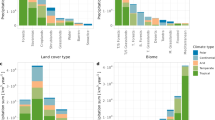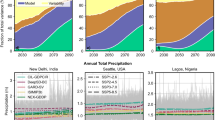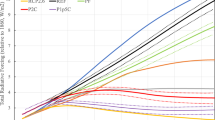Abstract
Monitoring datasets is essential to detect changes that are occurring and identify thresholds that cause them, but scientists around the world are now generating large volumes of data that vary in quality, format, supporting documentation, and accessibility. Moreover, diverse models are being run at various spatial and temporal scales to try and understand past climate variability and its impacts, generate future climate and land use scenarios, and project potential future impacts to the planet. Conservation practitioners and land managers are struggling to synthesize this wealth of information, identify relevant and usable datasets, and translate evolving science results into on-the-ground climate-aware strategies.In partnership with ESRI and Mambo media, the Conservation Biology Institute (CBI) is developing a versatile web-based resource that centralizes usable climate change-relevant datasets and provides analytical tools to visualize, analyze, and communicate findings for practical applications. To illustrate its capability to store, manipulate, and derive relevant conclusions to users, we present three examples of projects involving scientists and managers that are part of the Climate Center of Data Basin (http://www.databasin.org): a conservation project in the Puget Sound area of Washington State, a climate change impacts project in California, a North American project looking at climate change impacts on Canada lynx. We conclude by showing the use of this new web tool in workshops that bring together scientists and practitioners, allowing all to access the data and develop more effective management strategies.
Similar content being viewed by others
Article PDF
Author information
Authors and Affiliations
Corresponding author
Rights and permissions
About this article
Cite this article
Bachelet, D., Strittholt, J. & Comendant, T. Data Basin Climate Center: sharing and manipulating spatial information on the web. Nat Prec (2010). https://doi.org/10.1038/npre.2010.5256.2
Received:
Accepted:
Published:
DOI: https://doi.org/10.1038/npre.2010.5256.2



